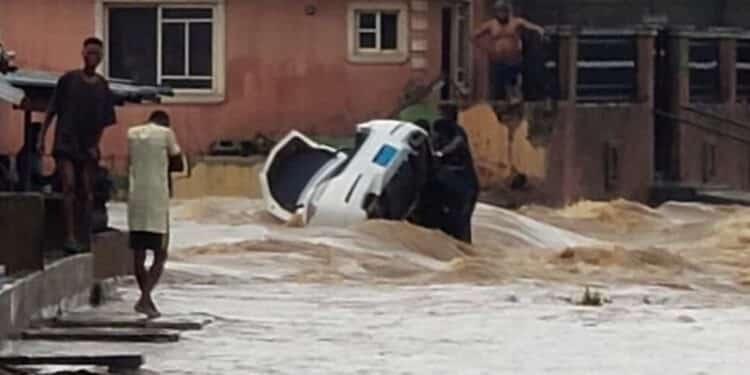The United Nations Children’s Fund (UNICEF) has said that no fewer than 600 Nigerians died, and 1.3 million others were rendered homeless as a result of the floods that ravaged most states across the country this year.
The Chief of UNICEF Field Office, Enugu, Mrs Juliet Chiluwe, stated this on Saturday during an official handover of relief supplies by UNICEF to the Anambra State Government.
Chiluwe said the figure was based on data from the government.
UNICEF handed over to the Anambra Government 100 drums of chlorine for disinfecting water sources, 40 cartons of Aquatabs for household water treatment, and 320 cartons of ready-to-use therapeutic food.
The supplies were received by Anambra State Deputy Governor, Dr Onyekachukwu Ibezim, on behalf of the state governor, Prof Chukwuma Soludo.
In her address, Chiluwe said, “We bring you greetings from UNICEF, Nigeria, and sympathise with the government and people of Anambra State on the recent flooding experience, especially with the women and children who remained vulnerable during these times.
“We acknowledge that since September 2022, the worst floods in a decade affected 2.8 million people, of which an estimated 60 per cent are children, across 34 of the 36 states in Nigeria. Of those affected, 1.3 million people have been displaced, and over 600 people have died from flooding, according to government data.
“Continuous heavy rains have collapsed hundreds of public health facilities, water systems and sanitation facilities, increasing the risk of waterborne diseases, such as cholera, diarrhoea, and malaria.
“To contribute to the effort of government and other development partners, UNICEF, with funding from the Central Emergency Response Fund, has initiated a multi-sectoral response comprising health, child protection and WASH sectors, to mitigate the impact of the floods and support the early recovery-phase of the affected population in Anambra State.
“For child protection, the response will focus on protection concerns in three key areas: the provision of psychosocial support for flood-affected children; the prevention of family separation and the reunification of separated and unaccompanied children, as well as the strengthening of community-based protection systems.”











